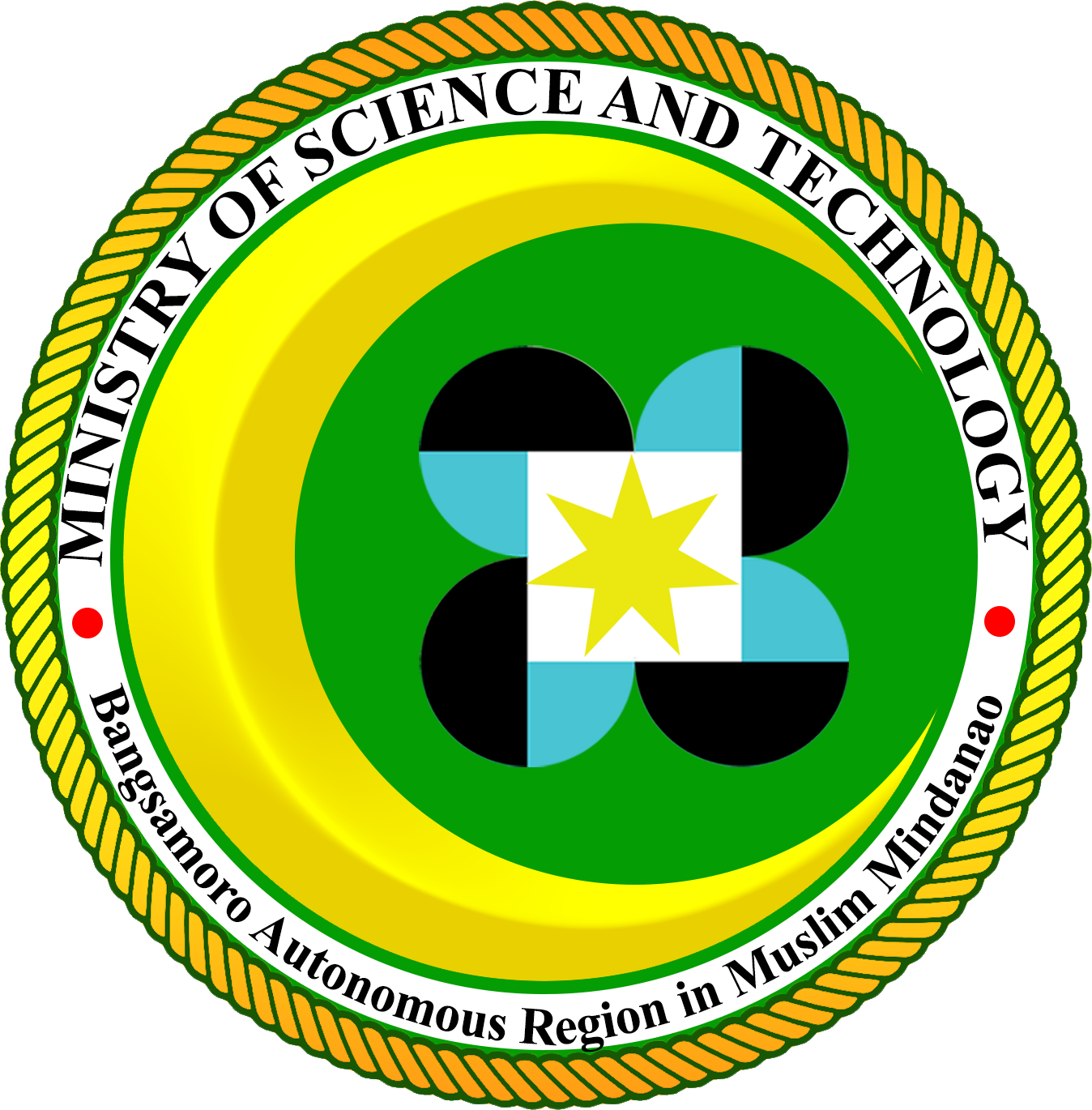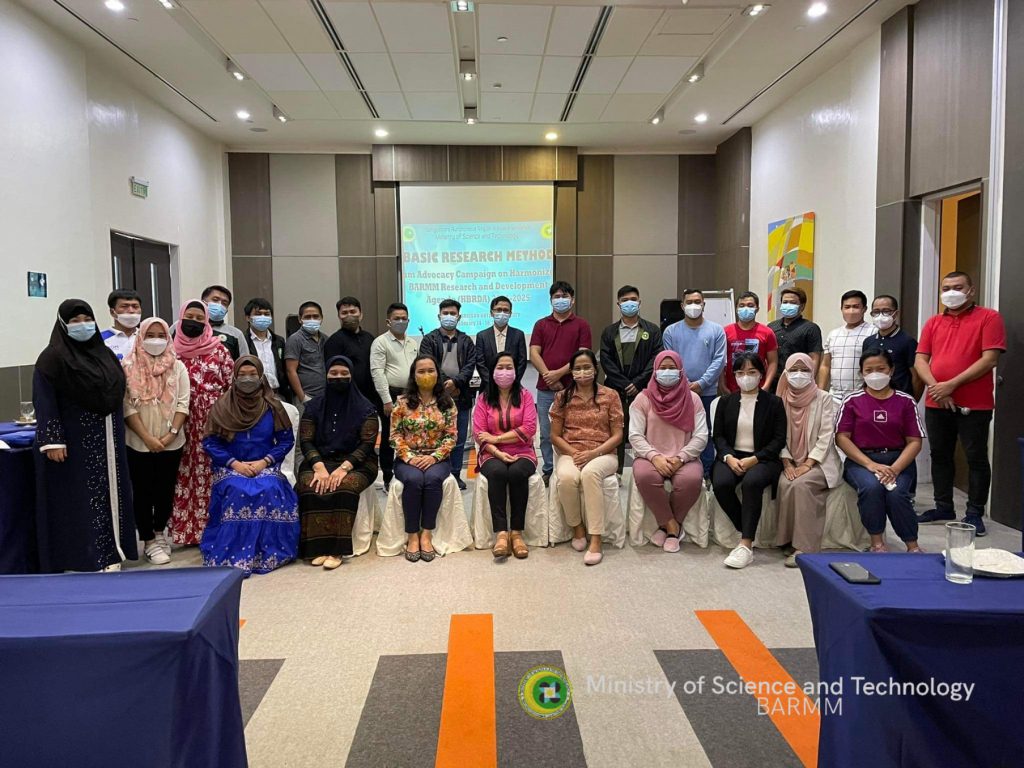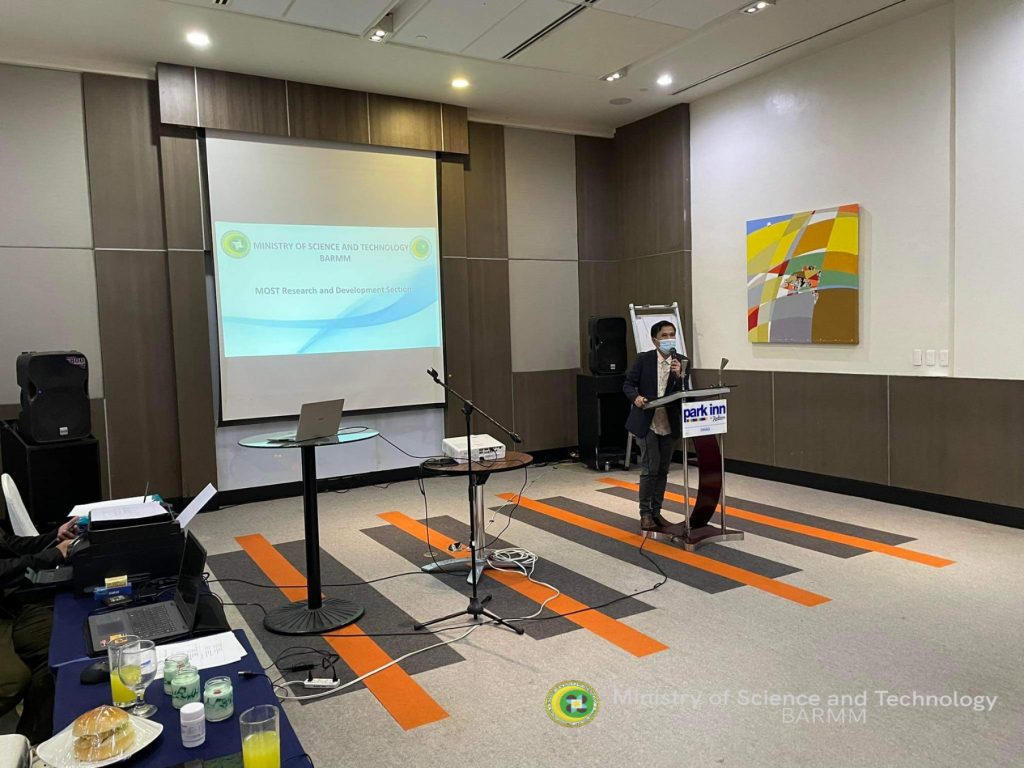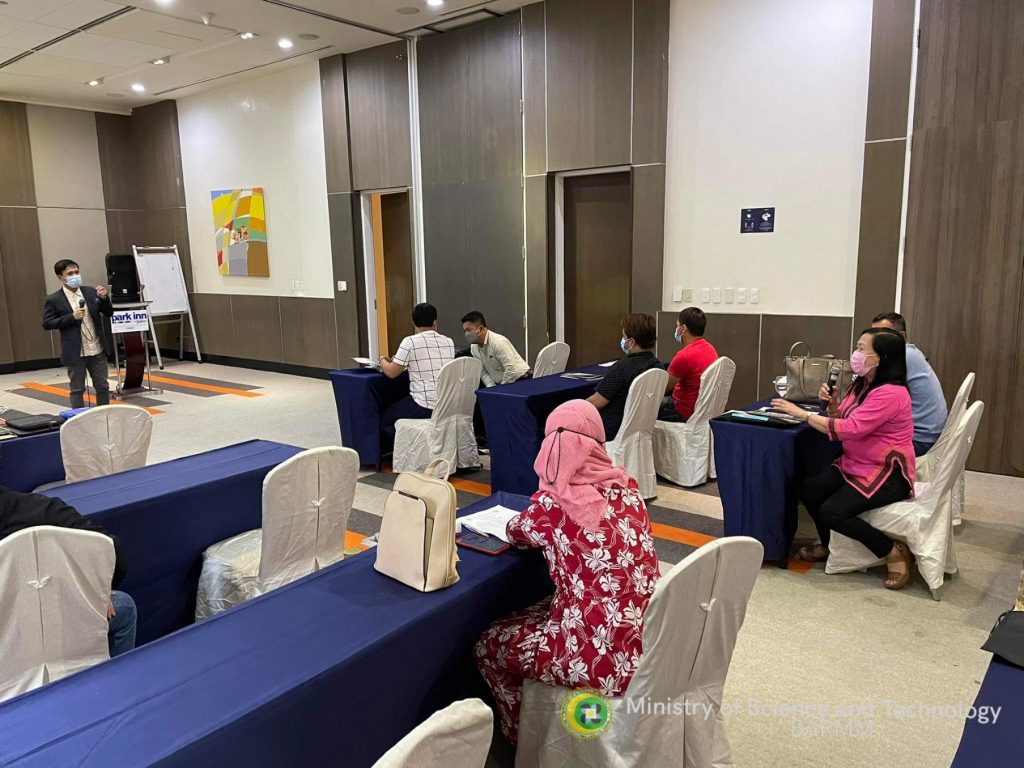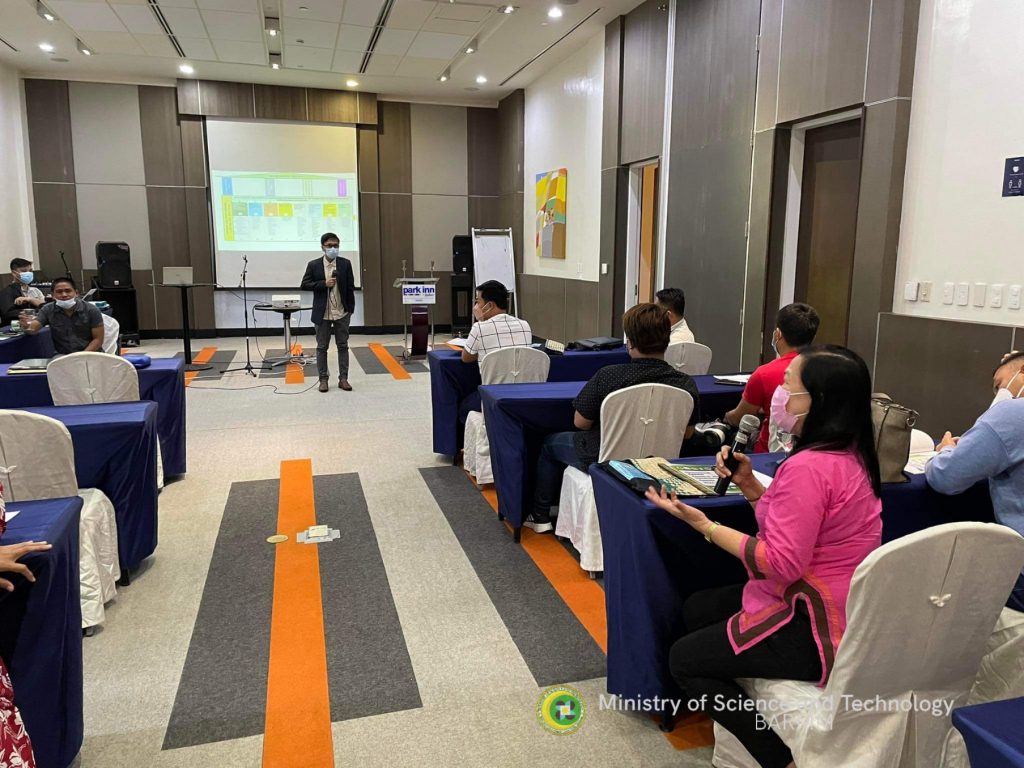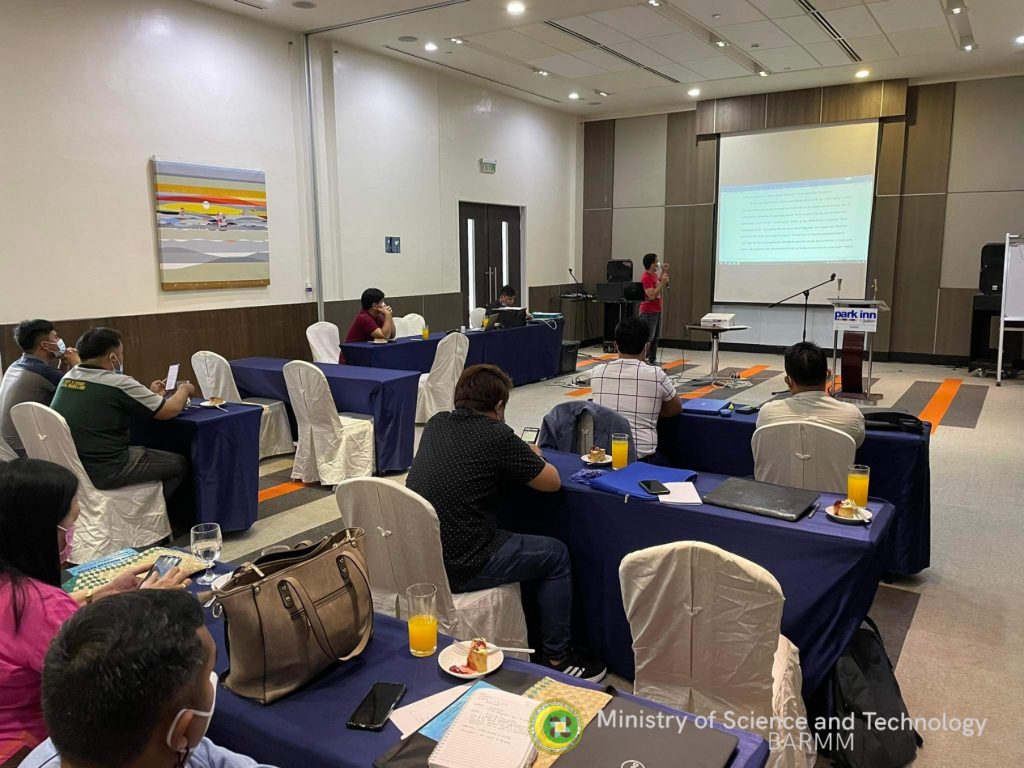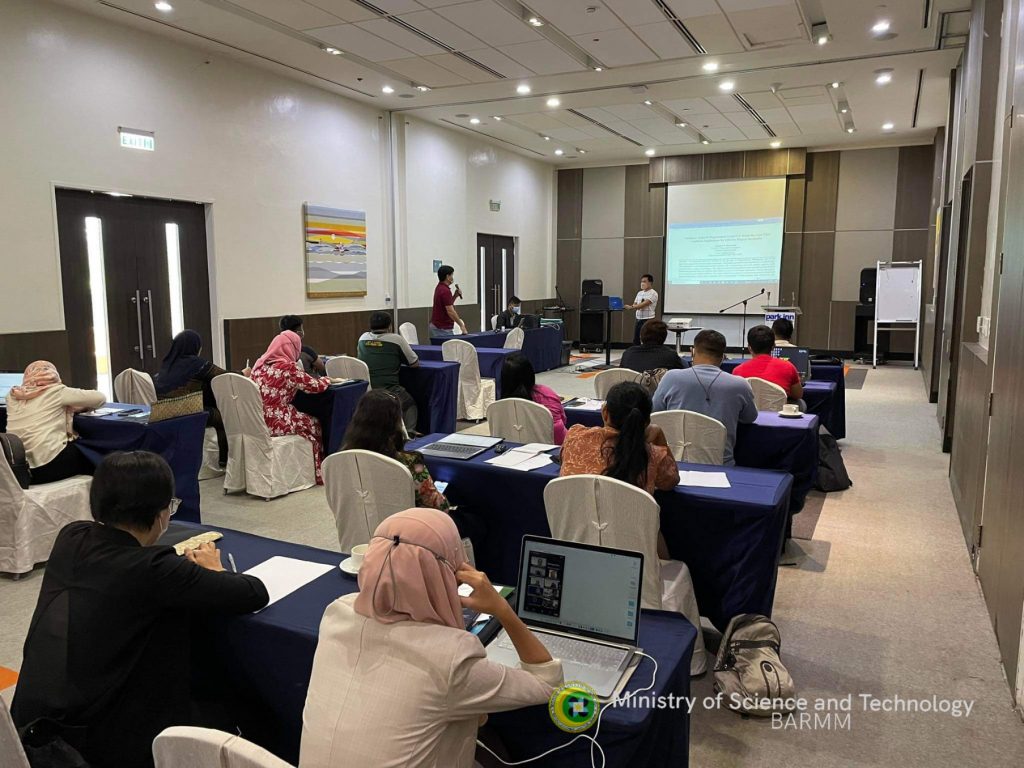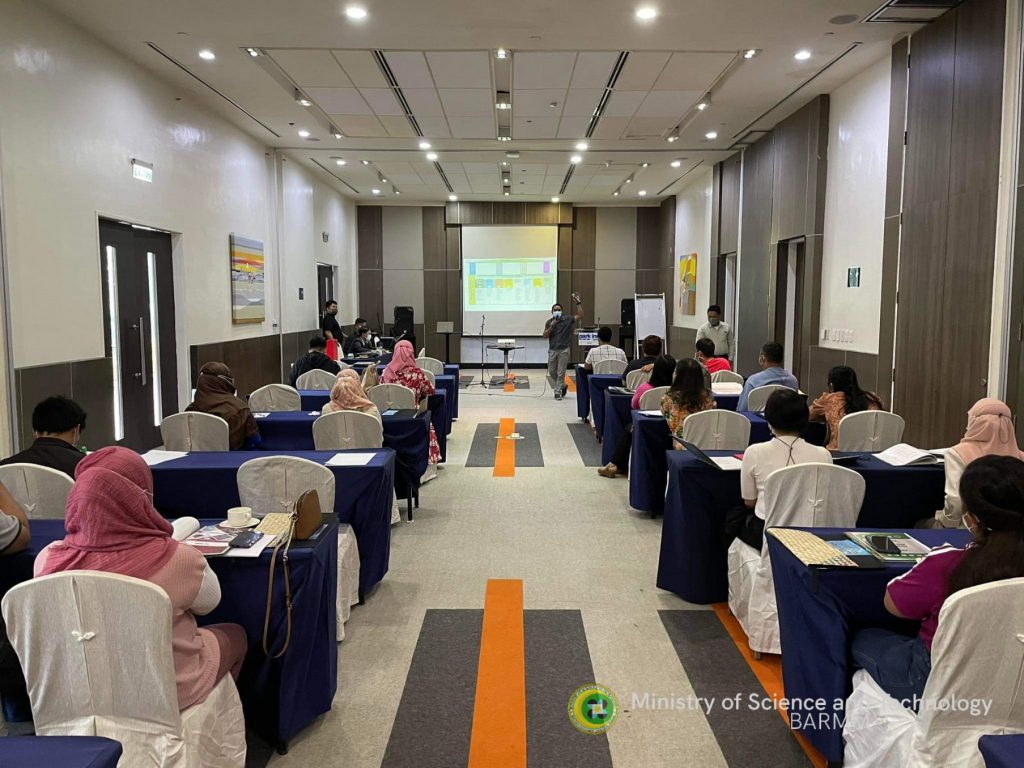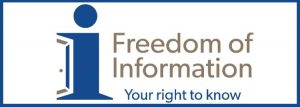DAVAO CITY — Some 30 researchers from academe, ministries, and other sectors participated in the Basic Research Method Training and Advocacy Campaign on BARMM Harmonized Research and Development Agenda (BHRDA) conducted by the Ministry of Science and Technology on February 14-18, 2022 at Park Inn Hotel.
As the leading ministry in the research and development undertakings in the Bangsamoro region, MOST aims to capacitate researchers on basic research methodology, understand the administrative part of research proposals, develop capsule or full-blown research proposals, and advocate the Bangsamoro Harmonized Research and Development Agenda (BHRDA).
In a statement, Nasrodin Buisan, Bangsamoro Director-General (Designate), said that this activity would provide understanding and acquire more ideas on the methodology of basic research and campaign across the region the initiatives, plans, and programs of the BHRDA.
“The research and development in the Bangsamoro region have already its direction through Bangsamoro Harmonized Research and Development Agenda (BHRDA). We encourage our researchers to align priority researches under this agenda to address and ensure responsiveness to the pressing needs of the people,” Buisan emphasized.
This research approach training is to acquire information to improve one’s understanding, and this can be useful as a solution to a problem and expanding the pool of knowledge in different disciplines. The researcher tends to adopt one or more methods to gather the most valid and relevant information for the research.
Furthermore, MOST campaigned for the Bangsamoro Harmonized Research and Development Agenda (BHRDA). This agenda would lead to more significant R & D initiatives, policies, plans, and activities of the Bangsamoro region that would allow responsiveness to the needs of the constituents.
Six priority areas that BHRDA advocated. These are Basic Research, Agriculture, Aquatic, and Natural Resources, Health, Disaster Risk Reduction & Climate Change Adaptation, Industry, Energy, Emerging Technology, and Culture and Heritage.
The activity also presented the BHRDA roadmap from 2021 to 2025. These are crafting of the R & D Agenda, the establishment of BARMM R & D council, policy support for the priority research output and providing funds, operational BARMM R & D council for policy support, pre-implementation of priority research output, policy support for BARMM R & D institute and providing funds, preparation of BARMM R & D institute programs and structure, the establishment of BARMM R & D institute, pre-implementation of BARMM R & D institute, and operational institute.
Moreover, Engr. Abdulwahid Sendad, Technical Management Division’s Chief, stated that enhancing the knowledge and skills of researchers in the region would result in a productive scientific community.
“We encourage our researchers to enhance their research and innovative skills through capacity-building to become productive and sustain collaborative R & D efforts in the region,” Sendad said.
AOM-ICS
